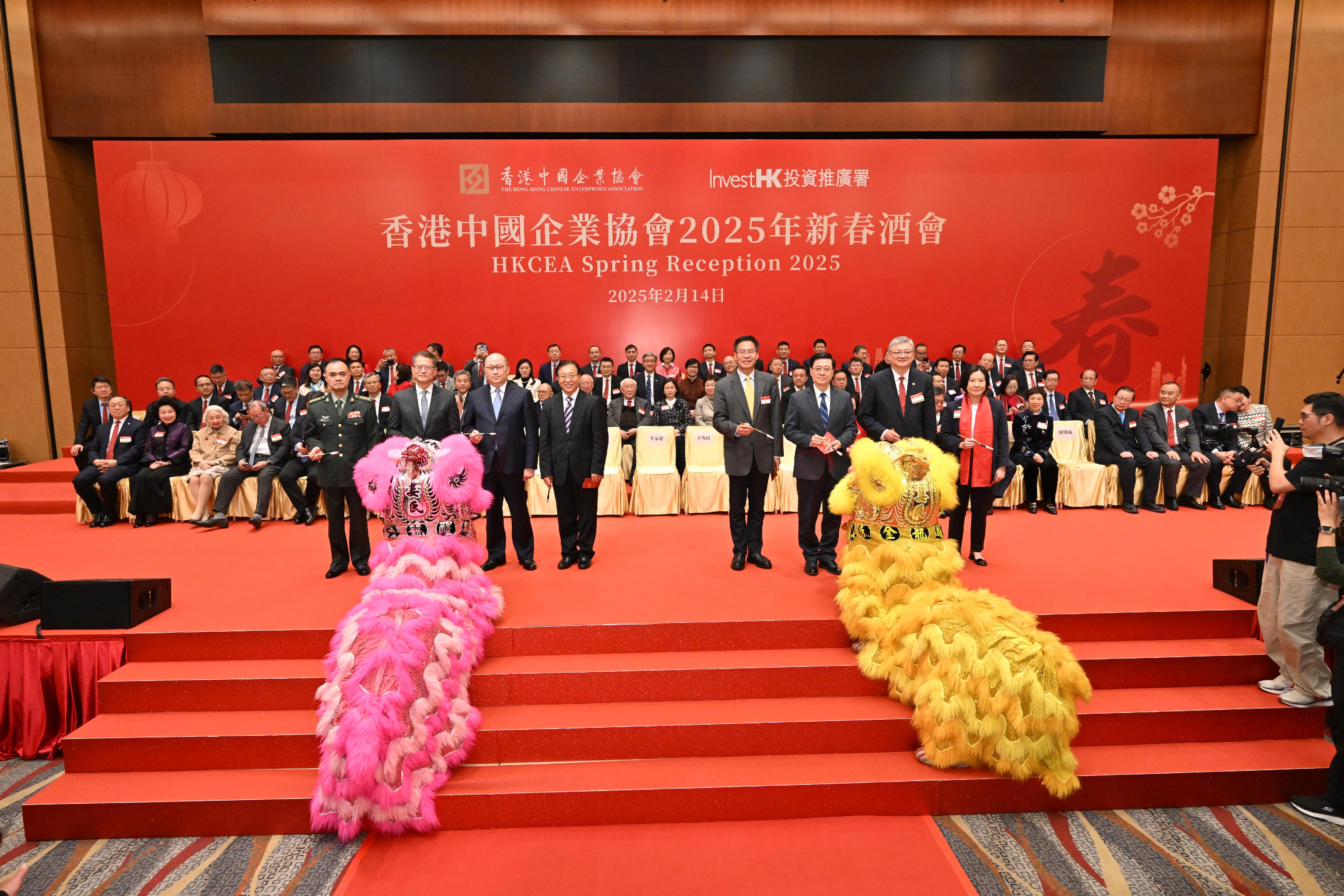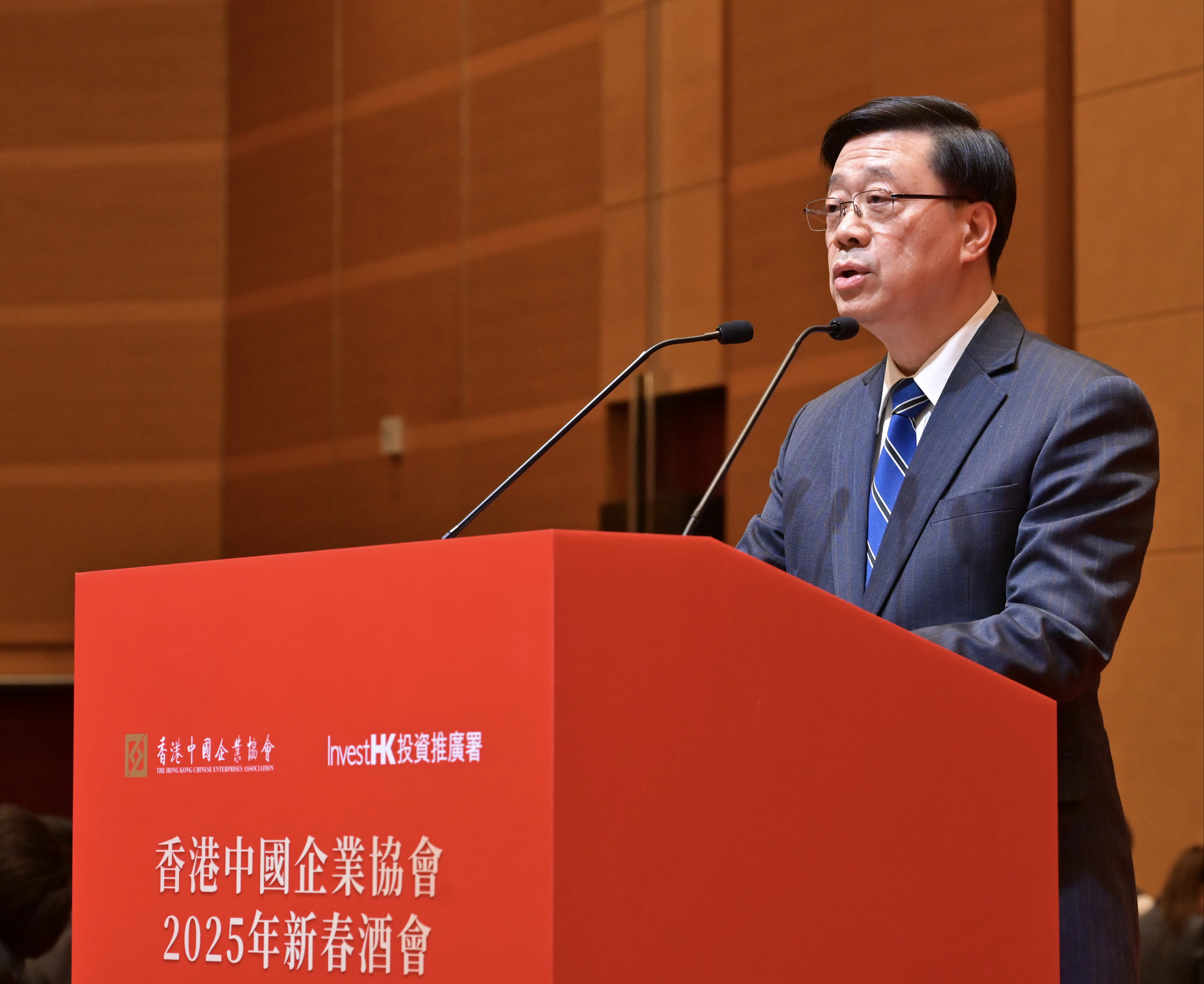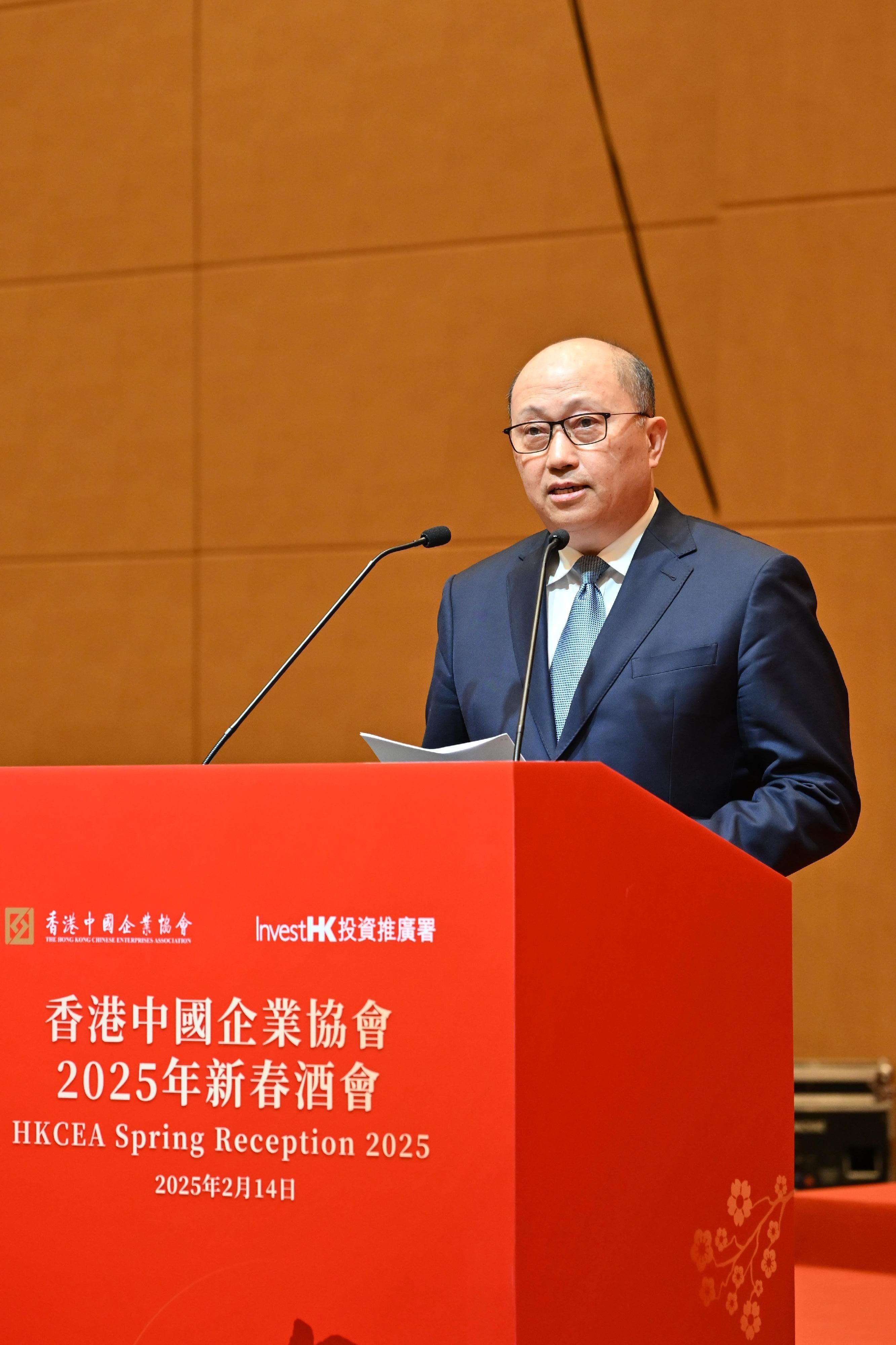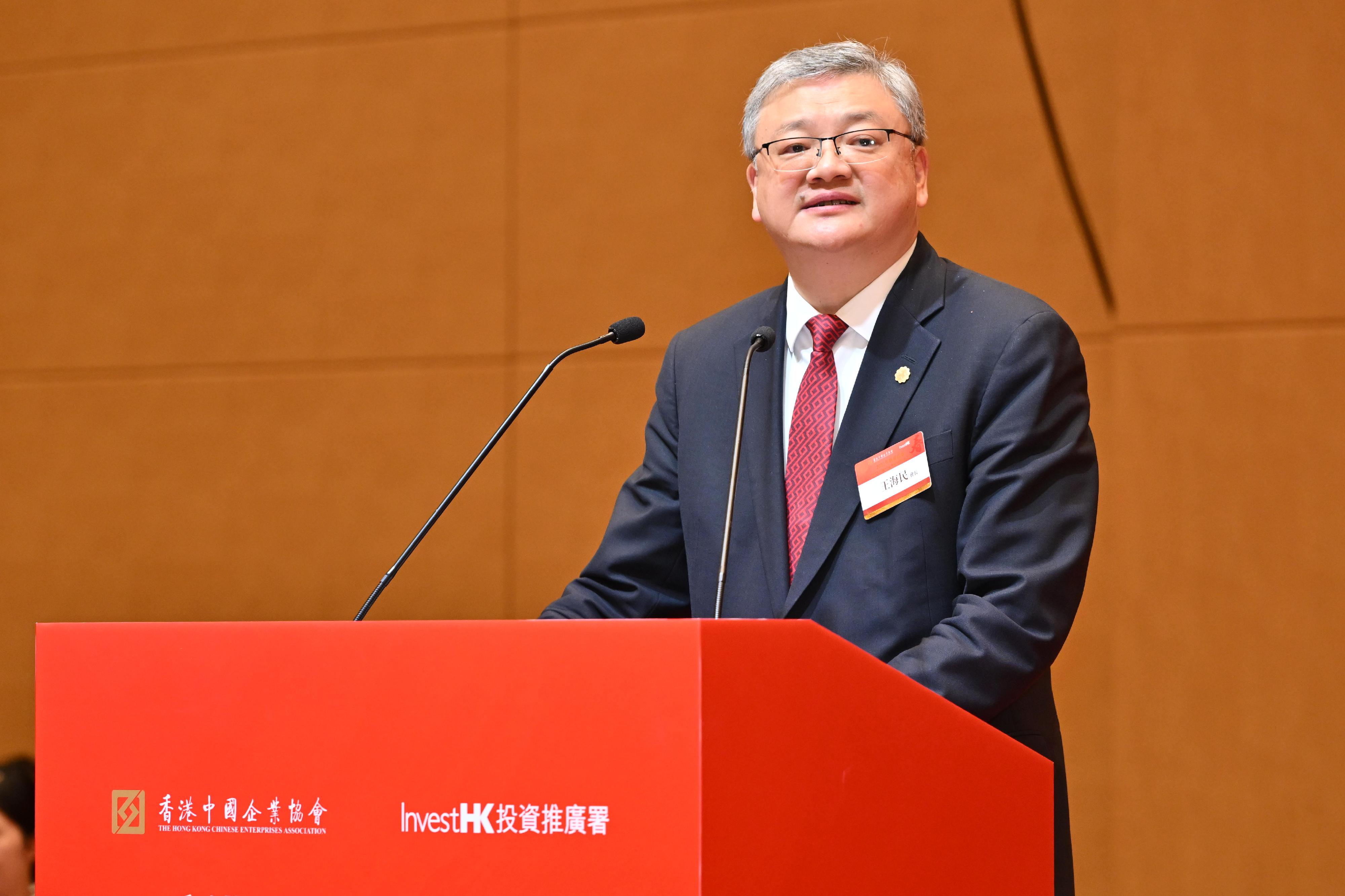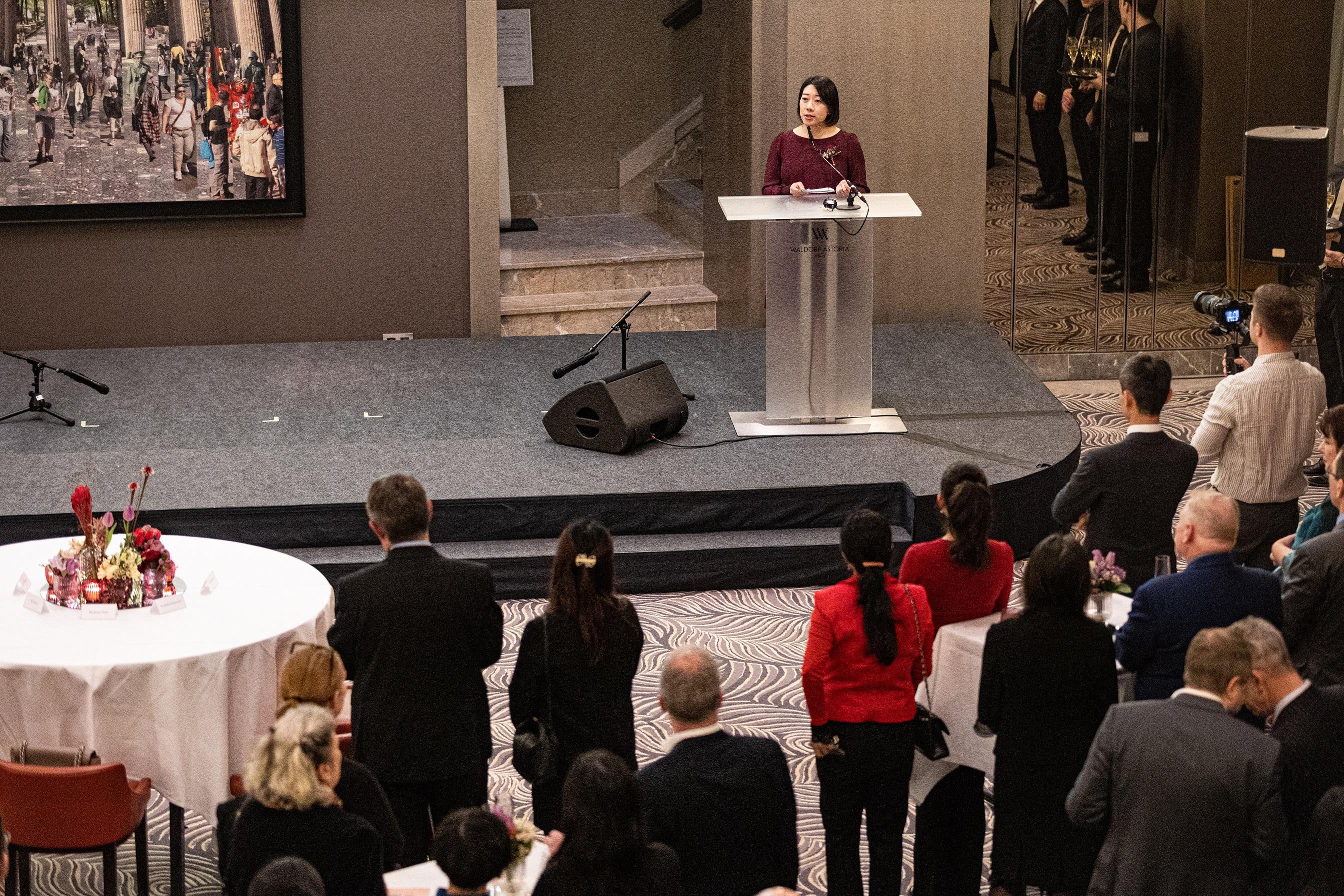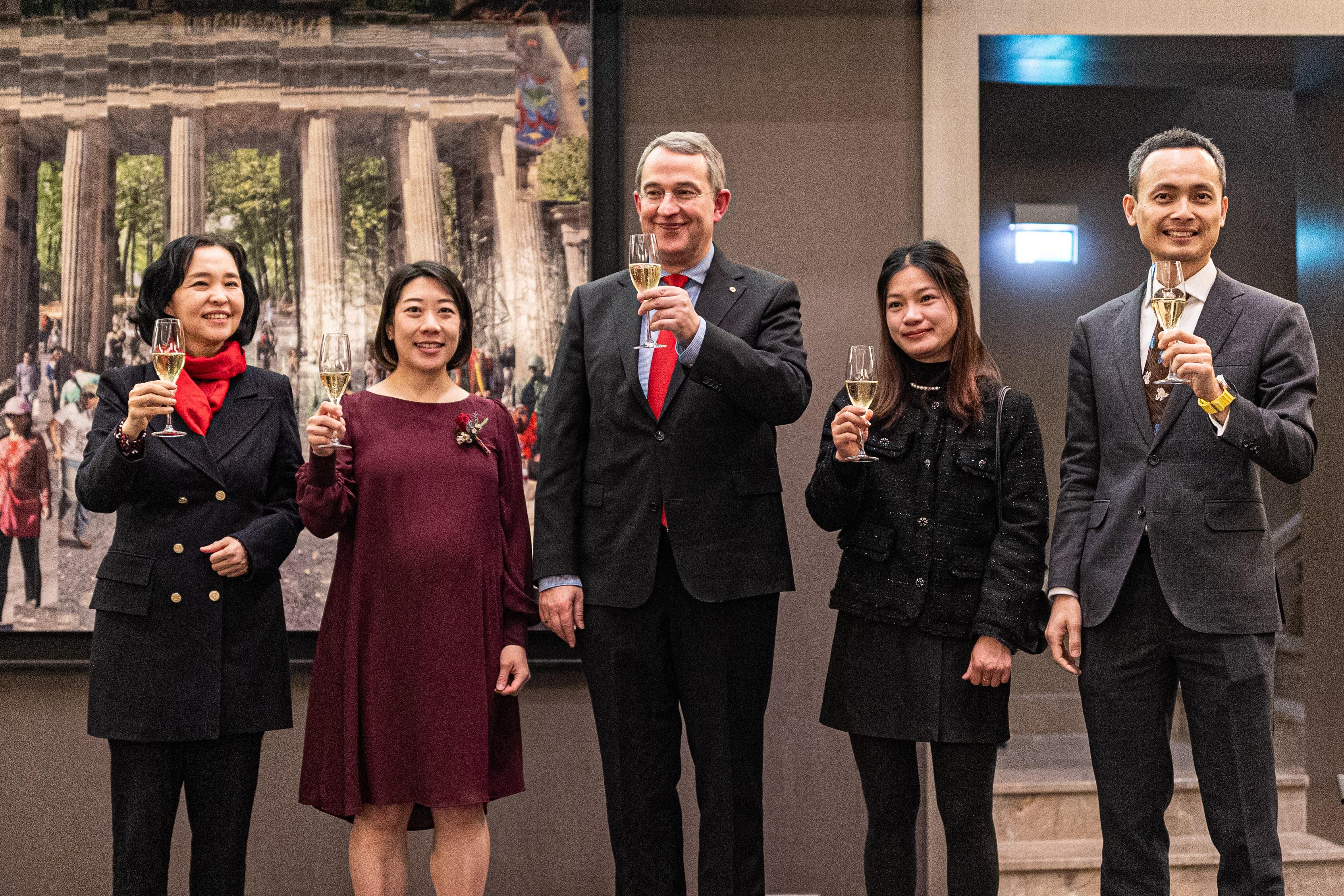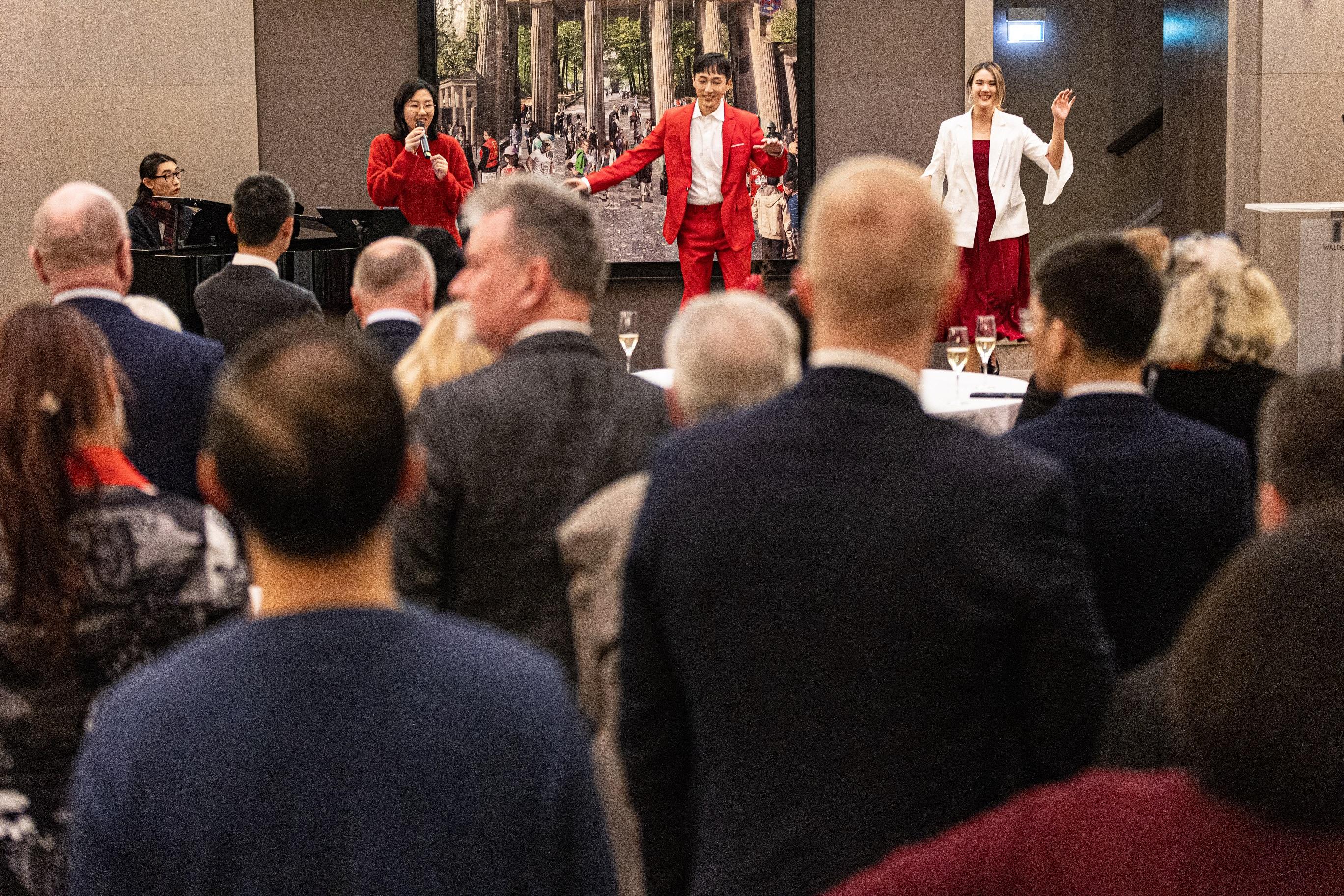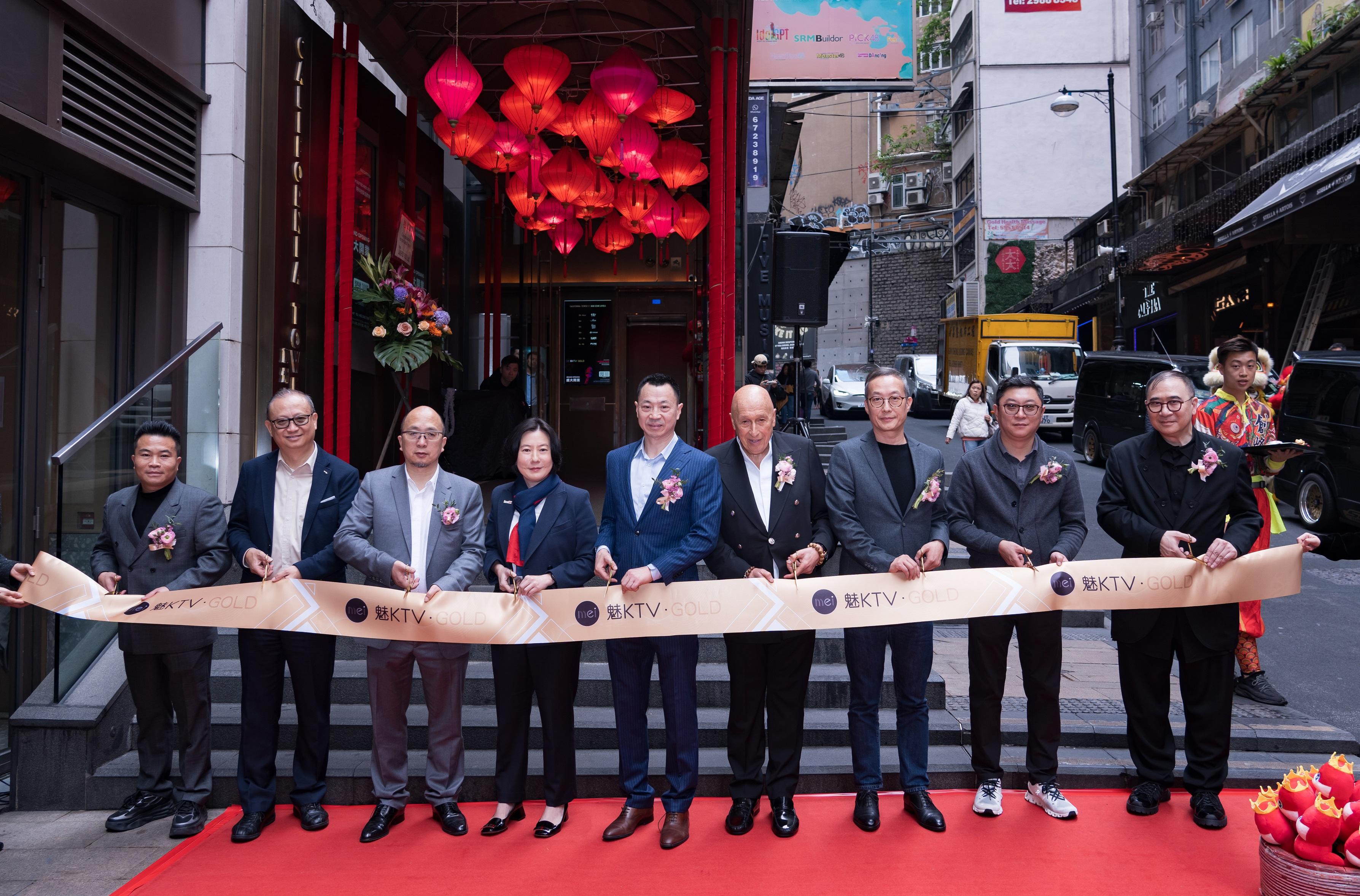​The Hong Kong Economic and Trade Office, Berlin (HKETO Berlin) held a Chinese New Year reception in Berlin, Germany, on February 13 (Berlin time) to celebrate the Year of the Snake. About 160 guests including government officials, senior diplomats and leading figures of the political, business and cultural sectors of Germany attended the reception.
In her welcome remarks, the Director of HKETO Berlin, Ms Jenny Szeto, briefed the guests on Hong Kong's encouraging achievements during the past year. "Despite the challenges of a global economic slowdown, Hong Kong's economy grew by 2.5 per cent in 2024, and we rose again to third place in the Global Financial Centres Index, setting the stage for a strong start to the year."
Ms Szeto also highlighted various initiatives that consolidate and enhance Hong Kong's status as an international centre in the eight key areas. She added that with the implementation of further liberalisation measures under the amended Mainland and Hong Kong Closer Economic Partnership Arrangement, Hong Kong's unique advantages as a gateway to Mainland China, would be further enhanced. Complemented by other facilitating initiatives such as multiple-entry visas for foreign staff of Hong Kong-registered companies, the investment, trade and people-to-people ties between Hong Kong and the Central and Eastern European countries will continue to be strengthened.
HKETO Berlin also hosted a reception in Bratislava, the Slovak Republic on February 12 (Bratislava time) in co-operation with the Hong Kong Trade Development Council and the Slovak Chamber of Commerce and Industry. Six other receptions will be organised in Austria, Czechia, Hungary, Poland, Slovenia and Switzerland.
To promote the excellent work of Hong Kong artists abroad, HKETO Berlin has invited Hong Kong artists including Hong Kong dance group R&T (Rhythm & Tempo) and the Hong Kong Arts Centre (Comix Home Base), to perform at the receptions and showcase the vibrancy, diversity and creativity of Hong Kong's East-meets-West culture.
About HKETO Berlin
HKETO Berlin is the official representative of the Hong Kong Special Administrative Region Government in commercial relations and other economic and trade matters in Germany as well as Austria, Czechia, Hungary, Poland, the Slovak Republic, Slovenia and Switzerland.
